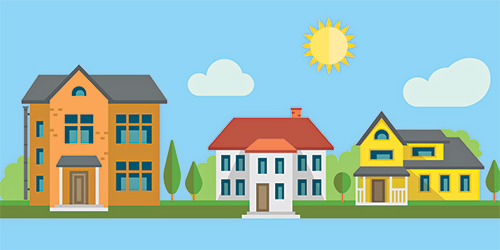Welfare Exemption

Overview
The Welfare Exemption is available to qualifying non-profit organizations that are religious, hospital, scientific or charitable in nature. The qualifying organization must:
- Own their own property (real or personal)
- Use the property exclusively for their exempt purpose
- Hold a valid Organizational Clearance Certificate from the State Board of Equalization
- File the proper exemption claim forms with the Assessor's Office
Deadlines for Filing
Newly Acquired Property / First Time Filers
Property acquired after the January 1 tax lien date may be eligible for exemption provided that the property is put to exempt use, or under construction for exempt use, within 180 days from the acquisition date.
First Filing claims must be submitted within ninety days after the first day of the month following the month in which the property was acquired, or by February 15th of the following year, whichever occurs first.
The following items must be submitted when filing an initial claim:
- A copy of the Organizational Clearance Certificate - obtained from the State Board of Equalization
- Copies of financial statements for the years claimed
- Form BOE 267-O, if there are any outside users of the property
Annual Filing
Once established, the Welfare Exemption requires an annual filing between January 1 and February 15 each year.
Note: Late penalties are applicable to claims that are not filed timely.
Low-Income Housing
Property used as housing for low-income tenants may be exempt if owned by a non-profit organization or a limited partnership with a qualifying managing general partner, and meet the following conditions:
- There is an enforceable and verifiable agreement with a public agency or a recorded deed restriction, or other legal document, that restricts the project's usage and that provides that the units designated for use by lower income households are continuously available to, or occupied, by lower income households at rents that do not exceed those prescribed by section 50053 of the Health and Safety Code, or, to the extent that the terms of federal, state, or local financing or financial assistance conflicts with section 50053, rents that do not exceed those prescribed by the terms of the financing or financial assistance. Please provide a copy of the regulatory agreement with a public agency, a copy of the recorded deed restriction, or a copy of another legal document if you are filing a claim on this property for the first time (BOE-267)
- The funds which would have been necessary to pay property taxes are used to maintain the affordability of, reduce rents otherwise necessary for, the units occupied by lower income households.
And at least one of the following criteria is applicable:
- The acquisition, construction, rehabilitation, development, or operation of the property is financed with government financing in the form of tax-exempt mortgage revenue bonds; general obligation bonds; loca, state or federal loans or grants; or any loan insured, held, or guaranteed by the federal government; or project-based federal funding under section 8 of the Housing Act of 1937 (The term "government financing" does not include federal rental assistance through tenant rent-subsidy vouchers under section 8 of the Housing Act of 1937).
- The owner is eligible and receives state low-income housing tax credits pursuant to Revenue and Taxation sections 12205, 12206, 17057.5, 17058, 23610.4, and 23610.5 or federal low-income housing tax credits pursuant to section 42 of the Internal Revenue Code.
- In the case of a claim that is filed for the 2000-2001 fiscal year or any fiscal year thereafter, 90 percent of more of the occupants of the property are lower income households whose rents do not exceed the rent prescribed by section 50053 of the Health and Safety Code. The total exemption amount allowed under this subdivision to a taxpayer, with respect ot a single property or multiple properties for any fiscal year on the sole basis of the application of this subparagraph, may not exceed one hundred thousand dollars ($100,000) of tax.
[Revenue and Taxation Code section 214(g)(1)(c)]
In addition to the Welfare Exemption claim form, property used for low-income housing requires a supplemental housing affidavit and supporting documentation.
For additional filing information, please contact our Exemption Unit at (707) 565-1881.